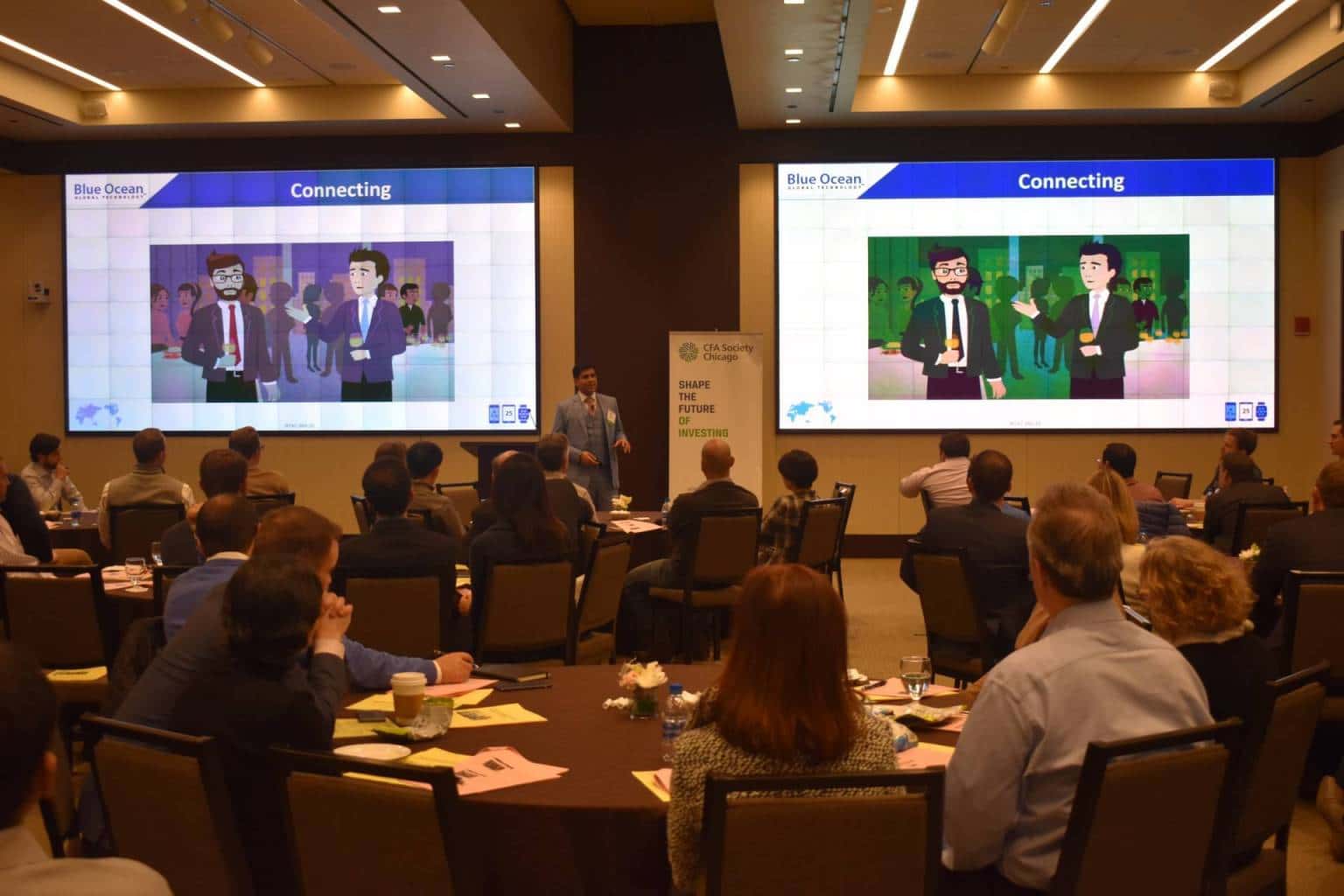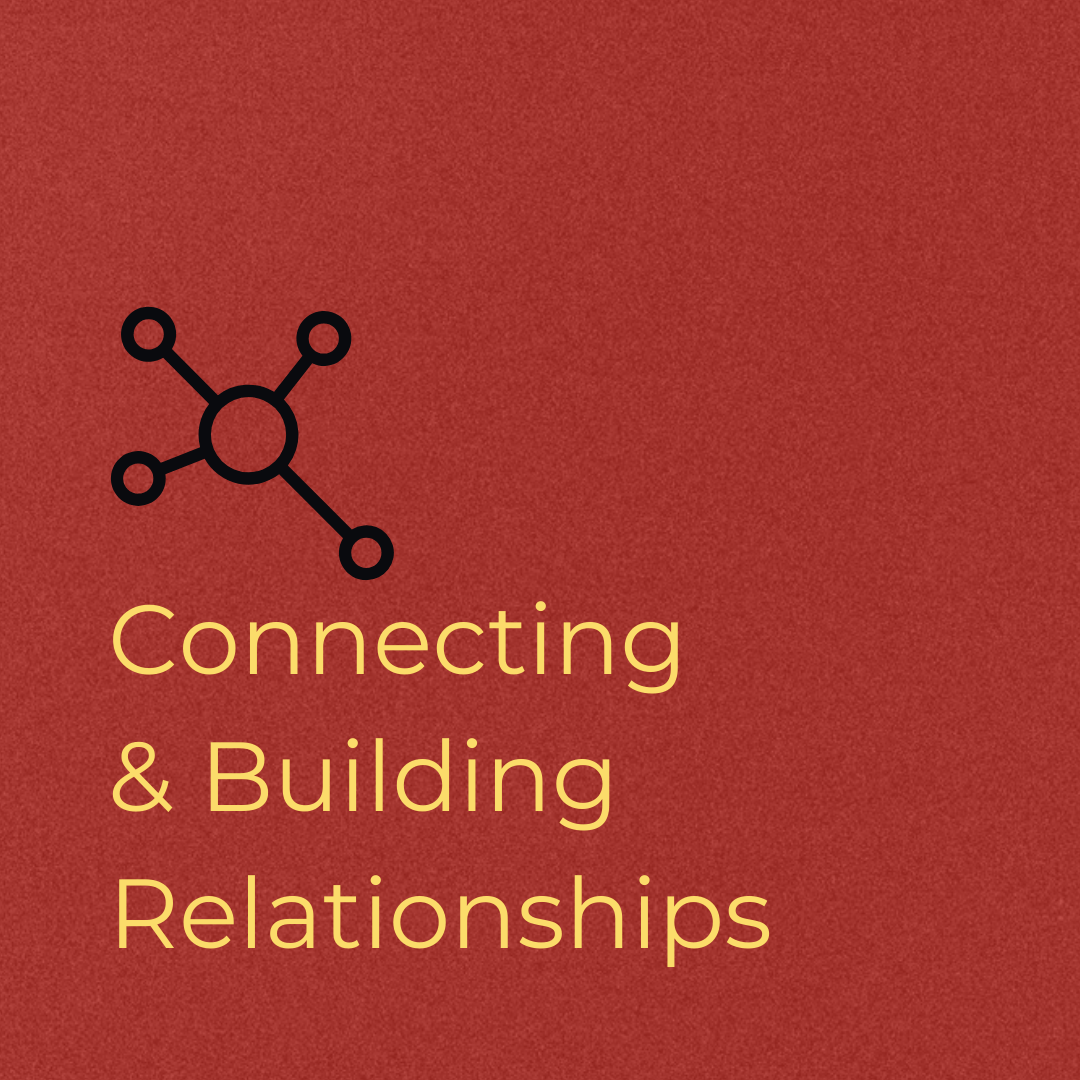CATEGORIES
#External Article #Relationship Building #Work Culturebusiness professional is becoming better at meeting new people, building real relationships with an improved art of storytelling. The more we invest in networking and practicing engaging with others effectively — the more natural our ability to build relationships becomes. We then look forward to the process of building relationships and finding genuine happiness in the process. Our opportunity set in life is a function of both what we know and who we know. And although we meet people everywhere we go, conferences afford a unique opportunity to change the “who we know” forever.
Timeless Tips for Connecting and Building Relationships at Conferences
We attend many events to acquire knowledge while fostering new connections. And because we’re all there for the same reason — to learn about new things and establish new relationships. We realize that these relationships could develop into long-term friendships or potential business partnerships.
Attending events
Attending events is the type of gathering that affords us the opportunity to make contacts easier. Although many conferences have gone virtual or been postponed due to the pandemic, it is more important than ever to attend these events now — and to build connections successfully.
Attending events now will entail both adapting to the “new normal” of socially distanced networking, in the short term, and preparing for an enthusiastic return to many new additional in-person networking in the long term.
Benefits of the connections
We don’t always see the real benefit of the connections we make at conferences right away. They must first be nurtured into meaningful relationships, and to do this successfully; we need a plan. Such relationships are gradually built through purposeful, patient, and authentic follow-up. An effective follow-up depends on the information you gather and the energy you invest to represent best who you are.
Authentic follow-ups
Authentic follow-up can help you stand out from the crowd because the “crowd” typically defaults to the easiest and sadly, least effective means of building relationships.
After you meet someone at a conference, one of two things happens: (1) You never hear from that person again, or (2) you receive a generic email or LinkedIn message saying something to the effect of, “It was nice meeting you at the conference. Let’s stay in touch,” perhaps with a link to a website.
If you have ever been guilty of either of these (as I have), establishing an action plan for new contacts will help you avoid repeating this common mistake. And the first step is preparation.
Set your specific goal before the conference
Before attending a conference, set some specific goals for yourself concerning the types of contacts you would like to make. Create a follow-up plan (before you go) for how you may be able to work with or help both the qualified contacts you meet and the less-than-ideal ones.
Remember that even though a person may not be an ideal contact for you, they may know someone else who is.
Furthermore, the most helpful and mutually beneficial relationships you establish might not be immediately obvious. You may need to have several meetings or conversations with an individual to discover your shared foundation of interest and opportunity.
For example, my colleague Sameer Somal at Blue Ocean Global Technology once met the head of sales for a financial services firm he introduced to others — but Sameer assumed that the new contact was not likely to work with our company directly. However, much later the new contact learned how Blue Ocean assists organizations in building a digital presence that supports sustainable sales growth.
The new contact connected back with Sameer and with the owner of his firm. The new contact included a strong written recommendation for hiring Blue Ocean Global Technology to create and implement a plan for better allocating their marketing, sales, and technology resources. Win-win for all of us.

Maximizing Connections at Your Next Conference or Event
Focus on Connecting.
During your initial conversations with people, really focus on them. When you give people your full attention, you make them feel important, and that may be the greatest gift of all between two human beings. Also, when people feel they’re truly being heard, they will talk more easily about themselves, their jobs, their passions, and their business.
Face them directly to avoid being distracted by the activity around you and lean toward them slightly. Take care not to invade their personal space. If you’re in a crowded hallway or other noisy location, suggest moving to another area, perhaps an alcove or a quieter corner of the room so that you can engage with fewer distractions.
And when you meet someone new and they are speaking — resist the urge to look around to see who else is in the room or what else is going on. Just don’t — looking around indirectly tells the person you don’t really care about what they’re saying and can create an unfavorable first impression (about you) that might be difficult to recover from.
Alex Jenkins, Relationship Director and Investment Specialist at Avantis Investors, make a conscious effort to avoid the topic of business when he meets someone for the first time. If the other person chooses to discuss professional interests or work matters, Alex will join in, but he never proactively steers the conversation in that direction.
By avoiding direct mention of business, Alex shows that he is interested in who that person is rather than simply what they do.
Paying close attention to your new contacts will help you learn what is important to them at that moment or in their life in general. Besides sharing potentially valuable business information, they might mention their favorite sports team, reference a movie they enjoy or disclose something personal about a loved one.
Focusing on your new acquaintance builds trust. Treat these individuals as though they’re the source of the most satisfying business relationship you’ll ever have because they just might be.
This article was originally published on Readwrite.


